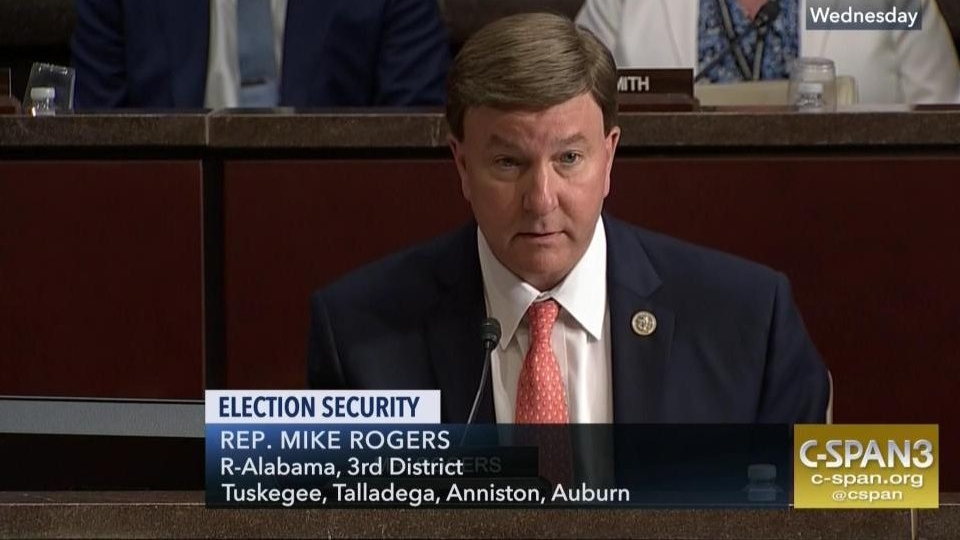Congressman Mike Rogers, R-Alabama, on Tuesday had top naval leadership during hearings on the 2022 defense budget. Admiral Michael Gilday, chief of Naval Operations, told Rogers that under President Joe Biden’s budget, the Navy’s budget has declined, putting our naval forces in a weak position for potential future conflict with China.
In his opening remarks, Rogers said: “It is almost as if the president developed this budget with little understanding of what is required to deter conflict and, if necessary, win the next war. Quite simply, this budget has little to do with pacing China. I refuse to support it. We should be expanding and modernizing our naval capabilities as called for by the Trump administration. I’m disappointed the Biden Administration doesn’t see the threat from China the same way.”
“Admiral, you painted a pretty ugly picture for the future of the Navy,” Rogers asked. “Given that fact, do you feel like this budget is adequate to help you take on those challenges?”
“Sir, I think it’s important to understand that based on the top-line that we have, that we can afford a Navy of about 300 ships,” Gilday answered. “What we’re trying to do with our investment strategy is to balance those investments across the readiness of the fleet today. The modernization with new technologies and that’s reflected as an example with a 12 percent increase in R&D, with emphasis on hypersonics on the offensive and laser technology on the defensive to protect the fleet. The third piece is capacity, and so we’re growing the Navy and at an affordable rate.”
Rogers said: “You said you’re growing the Navy? From what I’m reading the Navy is shrinking under this budget.”
“Sir, for the ’22 budget itself, the Navy’s numbers are declining. That’s correct,” Gilday answered.
“So how do you take on your challenges with a budget that is diminishing?” Rogers asked on follow-up.
“So as I stated, sir, in my opening comments, the last several studies that have been done going back five years, call for a larger, more capable fleet.,” Gilday said.
“And this budget doesn’t get you there?” Rogers said.
“No sir, it does not,” Gilday said.
“Let me ask this, Admiral Davidson, the recent PACOM commander indicated that he expects a conflict with China in the next six years in your best professional military judgment, do you agree with Admiral Davidson’s assessment?” Rogers asked.
“Sir, I think the keyword that he used there was could. And I think that potential always exists, and I think we have to be ready any given day for anything,” Gilday said.
Rogers said: “Well, you know if you agree, it could happen, I just don’t know why we would agree with anything that would reduce the force structure and induce a near term risk with China.”
The Biden administration has downsized the defense budget in their first budget request in order to fund their social priorities, including an infrastructure bill dealing with climate problems and social equity.
Republicans have questioned the wisdom of weakening defenses given the increasing possibility that China will engage Taiwan and given that Russia has just held its largest naval exercises since the USSR existed in the Cold War ahead of a summit between Biden and Vladimir Putin. The Biden administration has tamped down expectations for what can be accomplished at this summit. President Biden urged the G7 nations to join the U.S. in confronting China at their recent meeting in Europe.
Rogers represents Alabama’s 3rd Congressional District. He is the ranking member on the House Armed Services Committee.













































